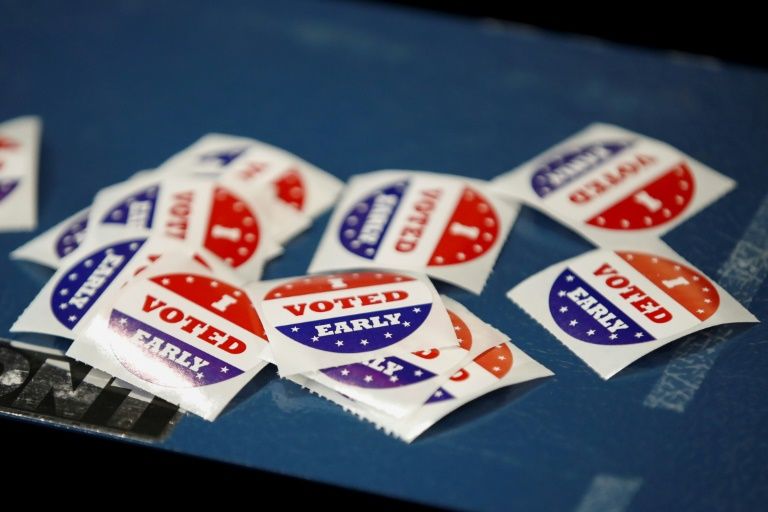Fact-checking the 2020 presidential campaign
Washington (AFP) – Inaccurate information has infected the 2020 US presidential election campaign, with doctored videos, fabricated quotes, and other false or misleading claims spreading across social media.
It has reached millions of people, skewing views on candidates and their positions as Americans decide who will serve as president for the next four years.
AFP is working to counter disinformation circulating ahead of the vote, using reverse image searches and reviews of old footage and photos to identify digitally altered content, and comments from experts and officials to debunk false claims.
Here are some examples of claims that AFP has fact-checked in the course of the campaign so far.
– Doctored videos and photos –
Doctored images — whether they are simply edited to remove the broader context of the speaker’s remarks, or feature deeper alterations — are frequently used.
US President Donald Trump has spread manipulated videos on social media, such as one altered to make it appear that Joe Biden played a rap song criticizing police brutality at an event, or another edited to make it seem that the Democratic candidate believed the president would be re-elected.
Presidential hopeful Mike Bloomberg posted a video online that had been edited to cast his rivals as dumbfounded during a lengthy silence after a comment he made during a debate. In reality, he quickly resumed speaking.
And posts on social media criticized Trump by featuring an image of the president holding a Bible aloft alongside a seemingly similar one of Adolf Hitler. But the photo of Hitler was doctored to add the book; in the original, his raised hand is empty.
– Mail-in voting fraud –
Millions of Americans are voting by mail this year due to concerns about the coronavirus, but Trump has repeatedly claimed — with no evidence — that this will open the door to widespread fraud.
US officials and experts say that mail-in voting poses little risk of fraud, and some states have safely conducted mail-in voting for years.
Social media users, including one of Trump’s sons, also cited isolated cases of mail-in ballots being sent in error as evidence of the potential for widespread voter fraud. But election officials say steps including signature verification prevent imposters from returning ballots in place of another voter.
– The coronavirus –
The coronavirus pandemic — and how Trump’s administration has responded to it — is a pivotal issue in the 2020 election. During the crisis, the president has advocated treatments that were ineffective if not potentially harmful, including anti-malarial drug hydroxychloroquine.
In one case, Trump retweeted a video of a doctor who claimed a combination of medicines including hydroxychloroquine will cure Covid-19, when no cure for the disease caused by the novel coronavirus currently exists.
Trump also falsely claimed that the United States conducted more testing for Covid-19 than all other countries combined, and suggested that the administration of his predecessor Barack Obama left behind “bad, broken tests,” for a disease that had not yet been discovered.
And earlier this month a campaign ad for Trump featured footage of Anthony Fauci appearing to praise the president’s coronavirus response. Contrary to the ad, the leading infectious diseases expert said he had never endorsed a political candidate, and that the remarks were taken out of context.
– False or misattributed quotes –
False or misattributed quotes have emerged on multiple occasions during the 2020 presidential campaign.
Widely shared Facebook posts, for example, claimed that either Trump or Biden referred to the novel coronavirus virus pandemic as a time when “people are dying that have never died before.” But there is no record of either man saying this, and letters from Ernest Hemingway show the phrase can be traced to the famed US author.
Other posts attributed flattering comments about Trump to former US secretary of state Henry Kissinger. But the remarks were fabricated; his office described them as “inventions,” and there was no record that he made them.
And a fabricated quote about punishing Trump supporters — which originated on a satirical site — was attributed to Harris.
Disclaimer: Validity of the above story is for 7 Days from original date of publishing. Source: AFP.


